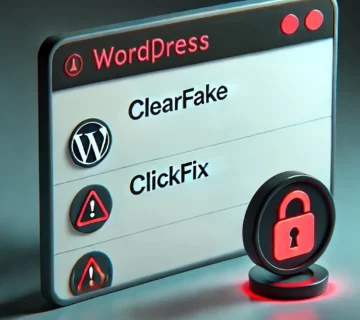WordPress Mitigates Plugin Attacks with New Security Measures
WordPress, a dominant content management system (CMS) powering millions of websites, has taken decisive steps to address a recent wave of plugin attacks. These attacks, characterized by their sophisticated nature and significant potential impact, have prompted WordPress to implement stringent security measures. The platform’s proactive approach aims to safeguard both developers and users from future vulnerabilities.
Understanding Supply Chain Attacks: Supply chain attacks exploit vulnerabilities within the software supply chain, often targeting the initial development phase or the distribution channels of software. In the case of WordPress, attackers leveraged credentials obtained from past data breaches to infiltrate plugins. By injecting malicious code into these plugins, hackers can compromise many websites that rely on them, posing a severe threat to online security.
The Nature of WordPress Plugin Attacks: The recent attacks on WordPress plugins highlight a critical security challenge. Hackers managed to gain unauthorized access to plugin repositories by using stolen credentials. Once inside, they injected malicious code into the plugins, which, when updated by users, compromised their websites. These attacks underscore the importance of securing every aspect of the software supply chain, from development to deployment.
WordPress’ Multi-Faceted Response: To counter these threats, WordPress has implemented several robust security measures:
- Pausing Plugin Updates WordPress temporarily halted updates for certain plugins identified as compromised. This pause prevents the spread of malicious code while developers address the vulnerabilities.
- Forced Password Resets All plugin authors are required to reset their passwords, ensuring that compromised credentials cannot be used to gain unauthorized access.
- Two-Factor Authentication (2FA) WordPress is encouraging plugin authors to enable two-factor authentication. This extra layer of security considerably minimises the likelihood of unauthorised access.
- Enhanced Monitoring and Audits WordPress has increased monitoring of plugin repositories and is conducting thorough security audits to detect and mitigate vulnerabilities proactively.
Impact on Plugin Authors: These security measures, while essential, impose certain challenges on plugin authors. The requirement to reset passwords and adopt new security protocols can be disruptive. However, these steps are necessary to protect the broader WordPress ecosystem. Authors are encouraged to embrace these changes as they contribute to a more secure and resilient platform.
The Role of the WordPress Community: the WordPress community plays a crucial role in maintaining platform security. Developers, users, and security experts must collaborate to identify and address vulnerabilities swiftly. By sharing knowledge and best practices, the community can help fortify WordPress against future attacks.
Future Security Enhancements: Looking ahead, WordPress plans to implement additional security measures to enhance platform integrity:
- Stricter Password Policies WordPress will enforce more stringent password requirements for plugin authors, ensuring stronger and more secure credentials.
- Regular Security Audits Continuous security audits will be conducted to identify and address potential vulnerabilities in real-time.
- Security Education and Awareness WordPress will launch initiatives to educate plugin authors and users about security best practices, fostering a culture of vigilance and proactive defense.
WordPress‘ proactive response to plugin attacks demonstrates its commitment to platform security and user protection. By implementing stringent security measures and fostering community collaboration, WordPress aims to mitigate future threats and maintain the integrity of its ecosystem. As the platform continues to evolve, these efforts will play a crucial role in ensuring a secure and resilient environment for millions of websites worldwide.
FAQs
- What is a supply chain attack? A supply chain attack exploits vulnerabilities within the software supply chain, often targeting the initial development phase or distribution channels.
- How did the WordPress plugin attack occur? Hackers used credentials from previous data breaches to gain unauthorized access to plugins and inject malicious code.
- What measures has WordPress implemented to counter these attacks? WordPress paused plugin updates, enforced password resets, encouraged two-factor authentication, increased monitoring, and conducted security audits.
- Will these security measures affect my website’s functionality? There might be temporary disruptions, but these measures are designed to enhance long-term security and stability.
- How can plugin authors improve their security? Authors should use strong, unique passwords, enable two-factor authentication, and stay updated on the latest security practices.
- What future steps is WordPress planning to enhance security? WordPress plans to implement stricter password policies, conduct regular security audits, and launch security education initiatives.



